10 start with R start with R
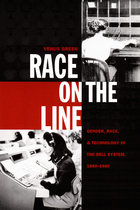
More than a simple story of the impact of technology, Race on the Line combines oral history, personal experience, and archival research to weave a complicated history of how skill is constructed and how its meanings change within a rapidly expanding industry. Green discusses how women faced an environment where male union leaders displayed economic as well as gender biases and where racism served as a persistent system of division. Separated into chronological sections, the study moves from the early years when the Bell company gave both male and female workers opportunities to advance; to the era of the “white lady” image of the company, when African American women were excluded from the industry and feminist working-class consciousness among white women was consequently inhibited; to the computer era, a time when black women had waged a successful struggle to integrate the telephone operating system but faced technological displacement and unrewarding work.
An important study of working-class American women during the twentieth century, this book will appeal to a wide audience, particularly students and scholars with interest in women’s history, labor history, African American history, the history of technology, and business history.
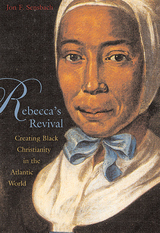
Rebecca's Revival is the remarkable story of a Caribbean woman--a slave turned evangelist--who helped inspire the rise of black Christianity in the Atlantic world. All but unknown today, Rebecca Protten left an enduring influence on African-American religion and society. Born in 1718, Protten had a childhood conversion experience, gained her freedom from bondage, and joined a group of German proselytizers from the Moravian Church. She embarked on an itinerant mission, preaching to hundreds of the enslaved Africans of St. Thomas, a Danish sugar colony in the West Indies. Laboring in obscurity and weathering persecution from hostile planters, Protten and other black preachers created the earliest African Protestant congregation in the Americas.
Protten's eventful life--the recruiting of converts, an interracial marriage, a trial on charges of blasphemy and inciting of slaves, travels to Germany and West Africa--placed her on the cusp of an emerging international Afro-Atlantic evangelicalism. Her career provides a unique lens on this prophetic movement that would soon sweep through the slave quarters of the Caribbean and North America, radically transforming African-American culture.
Jon Sensbach has pieced together this forgotten life of a black visionary from German, Danish, and Dutch records, including letters in Protten's own hand, to create an astounding tale of one woman's freedom amidst the slave trade. Protten's life, with its evangelical efforts on three continents, reveals the dynamic relations of the Atlantic world and affords great insight into the ways black Christianity developed in the New World.
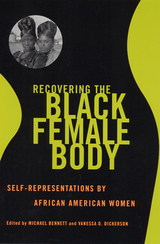
Despite the recent flood of scholarly work investigating the interrelated issues of race, gender, and representation, little has been written about black women’s depictions of their own bodies. Both past and present-day American cultural discourse has attempted either to hypereroticize the black female body or make it a site of impropriety and crime.
The essays in this volume focus on how African American women, from the nineteenth century to the present, have represented their physical selves in opposition to the distorted vision of others. Contributors attempt to “recover” the black female body in two ways: they explore how dominant historical images have mediated black female identity, and they analyze how black women have resisted often demeaning popular cultural perceptions in favor of more diverse, subtle presentations of self.
The pieces in this book—all of them published here for the first time—address a wide range of topics, from antebellum American poetry to nineteenth-century African American actors, and twentieth-century pulp fiction.
Recovering the Black Female Body recognizes the pressing need to highlight through scholarship the vibrant energy of African American women’s attempts to wrest control of the physical and symbolic construction of their bodies away from the distortions of others.
Contributors are Margaret Bass, Dorri Rabung Beam, Michael Bennett, Jacqueline E. Brady, Daphne A. Brooks, Vanessa D. Dickerson, Meredith Goldsmith, Yvette Louis, Ajuan Maria Mance, Noliwe Rooks, Mark Winokur, and Doris Witt. This book also contains a foreword by Carla L. Peterson and an afterword by Deborah E. McDowell.
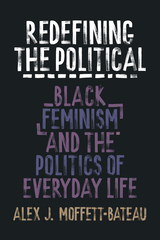
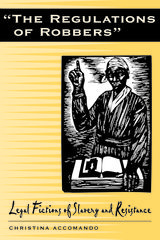
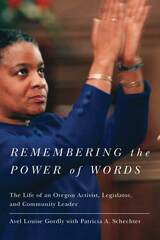
Remembering the Power of Words recounts the personal and professional journey of Avel Gordly, the first African-American woman elected to the Oregon State Senate.
The book is a brave and honest telling of Gordly’s life. She shares the challenges and struggles she faced growing up black in Portland in the 1950s and 1960s, as well as her determination to attend college, the dedication to activism that took her from Portland to Africa, and her eventual decision to run for a seat in the state legislature.
That words have power is a constant undercurrent in Gordly’s account and a truth she learned early in life. “Growing up, finding my own voice,” she writes, “was tied up with denying my voice or having it forcefully rejected and in all of that the memory of my father is very strong. To this day—and I am today a very experienced public speaker—preparation to speak takes a great deal of energy.” That this memoir has its origins as an oral history is fitting since Gordly has used her voice, out loud, to teach and inspire others for so many years.
Important as a biographical account of one significant Oregonian’s story, the book also contributes “broader narratives touching on Black history (and Oregon’s place within it), and most particularly the politics associated with being an African American woman,” according to series editor Melody Rose.
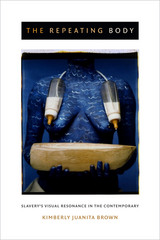
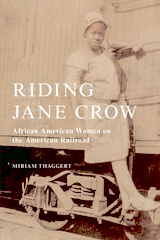
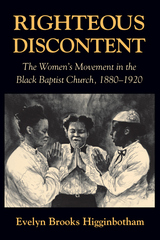
What Du Bois noted has gone largely unstudied until now. In this book, Evelyn Brooks Higginbotham gives us our first full account of the crucial role of black women in making the church a powerful institution for social and political change in the black community. Between 1880 and 1920, the black church served as the most effective vehicle by which men and women alike, pushed down by racism and poverty, regrouped and rallied against emotional and physical defeat. Focusing on the National Baptist Convention, the largest religious movement among black Americans, Higginbotham shows us how women were largely responsible for making the church a force for self-help in the black community. In her account, we see how the efforts of women enabled the church to build schools, provide food and clothing to the poor, and offer a host of social welfare services. And we observe the challenges of black women to patriarchal theology. Class, race, and gender dynamics continually interact in Higginbotham’s nuanced history. She depicts the cooperation, tension, and negotiation that characterized the relationship between men and women church leaders as well as the interaction of southern black and northern white women’s groups.
Higginbotham’s history is at once tough-minded and engaging. It portrays the lives of individuals within this movement as lucidly as it delineates feminist thinking and racial politics. She addresses the role of black Baptist women in contesting racism and sexism through a “politics of respectability” and in demanding civil rights, voting rights, equal employment, and educational opportunities.
Righteous Discontent finally assigns women their rightful place in the story of political and social activism in the black church. It is central to an understanding of African American social and cultural life and a critical chapter in the history of religion in America.
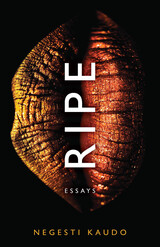
A LitHub Most Anticipated Book of 2022
“Emotional range without consequence,” Negesti Kaudo writes in her debut collection, Ripe, is a privilege of whiteness. In these essays, she fights back, exhorting readers to follow her through fury, grief, love, and hope as she confronts what it means to own her Blackness and her body in contemporary America. A scathing and nuanced cultural critic, she disentangles intersections of race, class, pop culture, size, sexuality, and more in spaces where she always seems to be either too Black or not Black enough. From attending private school as a poor Black student to the evolution of her hair routine to being fat and sexual when society says she should be neither, Kaudo overlooks nothing as she names the ways that white America simultaneously denigrates and steals Black culture. Most of all, she writes against the idea that a Black woman’s anger makes her an “angry Black woman,” claiming full emotional range as her birthright and as a tool against injustice on her quest to find herself no matter how uncomfortable the journey.
READERS
Browse our collection.
PUBLISHERS
See BiblioVault's publisher services.
STUDENT SERVICES
Files for college accessibility offices.
UChicago Accessibility Resources
home | accessibility | search | about | contact us
BiblioVault ® 2001 - 2024
The University of Chicago Press









